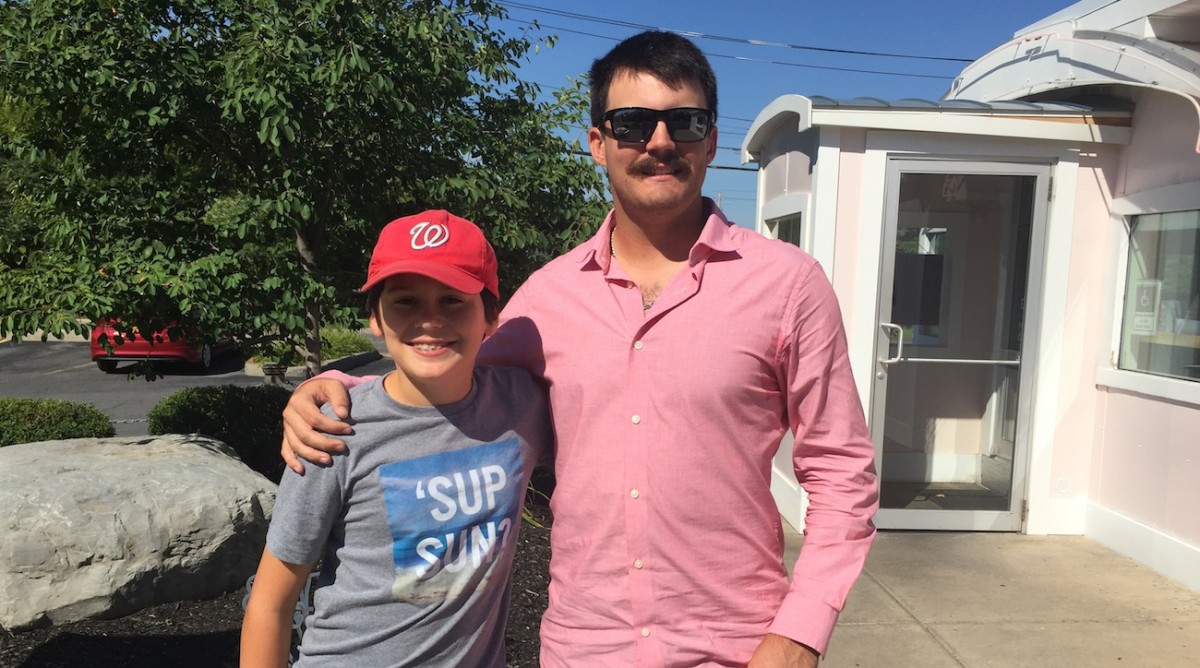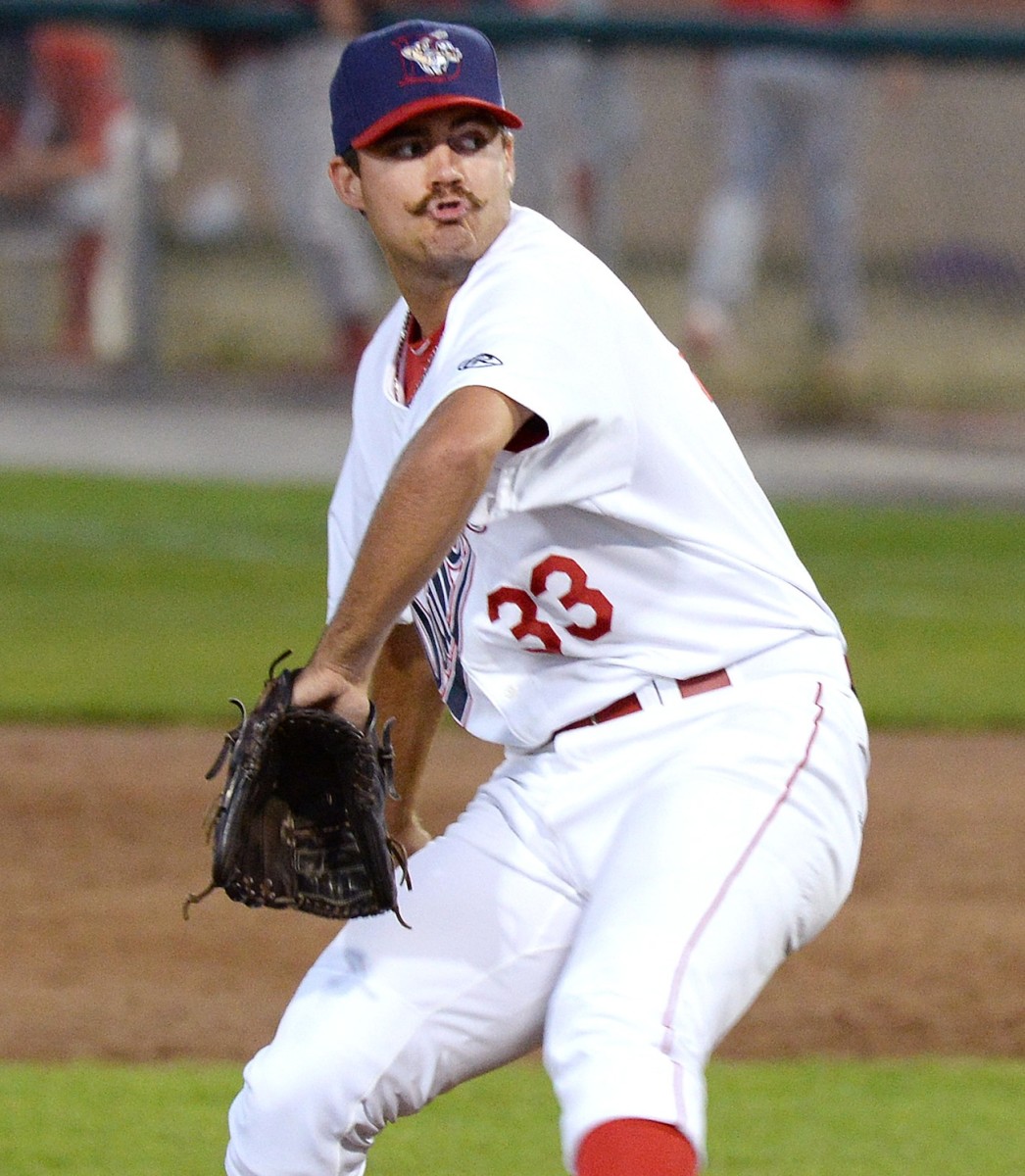What's it Like to Play in the Minor Leagues?


Life as a baseball player in the minor leagues can be unpredictable and fast-paced. Kevin Mooney, who was born and raised in Maryland, found himself jogging to the pitcher's mound from the bullpen at Falcon Park in Auburn, New York, home of the Auburn Doubledays, just days after signing with the Washington Nationals. Mooney had been the Nationals 15th-round draft pick that year. He signed with the Nationals just 19 days after his last college baseball game, with the University of Maryland.
Two days after he signed with the Nationals, he was assigned to the Doubledays, and two days after that, he pitched in his first game. That year, Mooney struggled to find his groove. Fast forward about a year. Mooney still plays for the Doubledays, a short-season Class A team, but this year, he put up stellar numbers from the bullpen. His ERA was 1.88 in 30 games. Batters hit just .171 against him, and he had a WHIP of just 0.96. (WHIP indicates how many players reach base an inning on average, so he lets about one player on base per inning. That’s pretty impressive). He put himself in a good position to move up next year. I sat down with Kevin before the season ended to talk about life in the minors.
The Routines
It's a lot like college, but I have a really different perspective because I pitch in the bullpen. Here all the relief pitchers are in the bullpen, away from the dugouts and the coaches, so we can do pretty much whatever we want. It's super laid back, and we have a lot of fun. We’re always paying attention to the game, but guys are telling stories, telling riddles, and we play lots of games. We play password, the name game, just easy games that everyone knows. Sometimes we play fantasy baseball. At the beginning of the game, each guy picks one position player, and whoever picks the player who has the best game wins. We do a bunch of stuff to pass the time because we have a lot of time to pass.
Starters are on a routine, so they know when they are going to play. For a reliever, it’s hard. The Nationals have a policy. If you throw one inning, you are off the next day; two innings and you are off for two days; three innings and you are off for three days.
The pitching coach will usually put up a list of the pitchers who might pitch that night. When you show up to the field, if you are on that list, you know you have to be on that night. During the game you stay ready…and if you don’t play, it’s the same thing the next day. You get nervous because you never know when you're going to throw. As soon as the fifth inning rolls around, all the pitchers who are on the list that day are sitting around getting ready. Who’s it going to be? We never know. You are not allowed to throw until the coach tells you to, so you are not warming up.
The Reality of the Minors
You spend 15 hours a day with your roommates and around 12 hours a day with everyone else. You always root for everybody, but you still hope that you better everybody. It's really weird to compete against your teammates.
At the beginning of the year, the Doubledays had around 30 players on the team and only about 16 of those original players still play here. I've played with almost 45 players this year. Some guys get moved up, some guys go back to Florida for the summer to play there, and some guys get released. It's really tough when guys get released.
They do it after the game. Usually if you are going to get released, you play that day. So you just played a game, and you are in the clubhouse, and one of the coaches will come to your locker and tap you on the shoulder and say, We need to see you in the coach’s office. And it’s either good news or bad news — either you are getting promoted or you are getting released.
They will close the door to the coach’s office, and typically it’s like five minutes. It’s not long. And then they will come out and you can usually tell based on how they are reacting. If they walk out to their locker real slow and open up their bag and start putting stuff in their bag, they are headed home. It’s really difficult. That’s a tough thing to have to deal with.

Typically at home in our house we wake up around 10 or 10:30. Sometimes we will throw some eggs on the skillet. If it’s too late, we’ll get lunch or make lunch. Sometimes on weekends our host mom will make eggs, pancakes. Or she’ll have some fruit for us. Then we will usually go back into our room. We’ll sit and relax for an hour or two.
We have to be at the field between 1 p.m. and 3 or 4 p.m., depending on the day. We get to the field and change. Pitchers and position players separate. Pitchers will stretch and play catch. Then we will do our conditioning for the day. We run and do a core workout. Then the position players will stretch and play catch and hit batting practice. When they do that, we have to shag in the outfield. Sometimes that is fun, and some days when it is really hot, that is awful! Then we will go inside for about an hour or more. We will relax, change into our uniforms, and then come out and play. Then after the game, there’s dinner. We shower, put our laundry in, go home, and go to bed because we are typically exhausted.
On the road, we will wake up and eat breakfast in the hotel because it’s free. If we are in a cool city we will walk around and see stuff. Then we usually get to the field around 3:30 or 4. Pitchers will stretch and throw at the same time as the position players. They will hit batting practice right away. We will still have to shag. Then we will come in and only have about 45 minutes before the game. After the game, you shower, eat, put your laundry in, and then go back to the hotel and go to sleep.
The Off-Season
A lot of players, if they are out of college, go back and take classes. I was fortunate enough to be able to go back and take one semester and graduate. I was totally done with my classes. I got my degree.
Most guys go home and get a job. You have to work. The minor league salary is not enough to live on for the year. I’m going to try to get a job at Best Buy or something. Something to pass the time and make O.K. money. Some guys will take a trip somewhere with their family or girlfriend or wife. Nothing super fancy. Mostly people get jobs in the off-season.
In January, I’m already playing catch five or six days a week and working out. I start throwing bullpens in the first week of February, and I'm still working out and getting ready for the season. Then comes the beginning of March, which is when we go down to Florida for spring training. We show up at 7 a.m., stretch, play catch, do drills, and practice.
Each day we play a scrimmage against all the other minor leaguers. There are probably about 150 players there, and there are four inter-squad games. Bryce Harper and Max Scherzer even came for a little while this year. We do that every day for a month. It's pretty tough because there are no off-days. Then in the first week of April, you break into your regular teams and play for the summer. After the summer, players go home and take a month off. Just sitting on the couch and doing nothing. When October comes around, you start working out, running and getting back in shape.
Advice for Young Pitchers
Don’t give up! A lot of high school pitchers see that they are never going to be the best and they stop playing. Unless you are freak athlete, like Bryce Harper, you will always see someone who is better than you.
In spring training, the number one message they tell you is that it doesn’t matter where you are playing or who you are playing with, as long as you have a jersey. If you have a jersey to put on your back, you are doing something right. You are good enough. It might take longer for you to develop and get better. But it’s O.K.
Photographs by (from top): Aidan Kohn-Murphy; Glenn Gaston Photos
